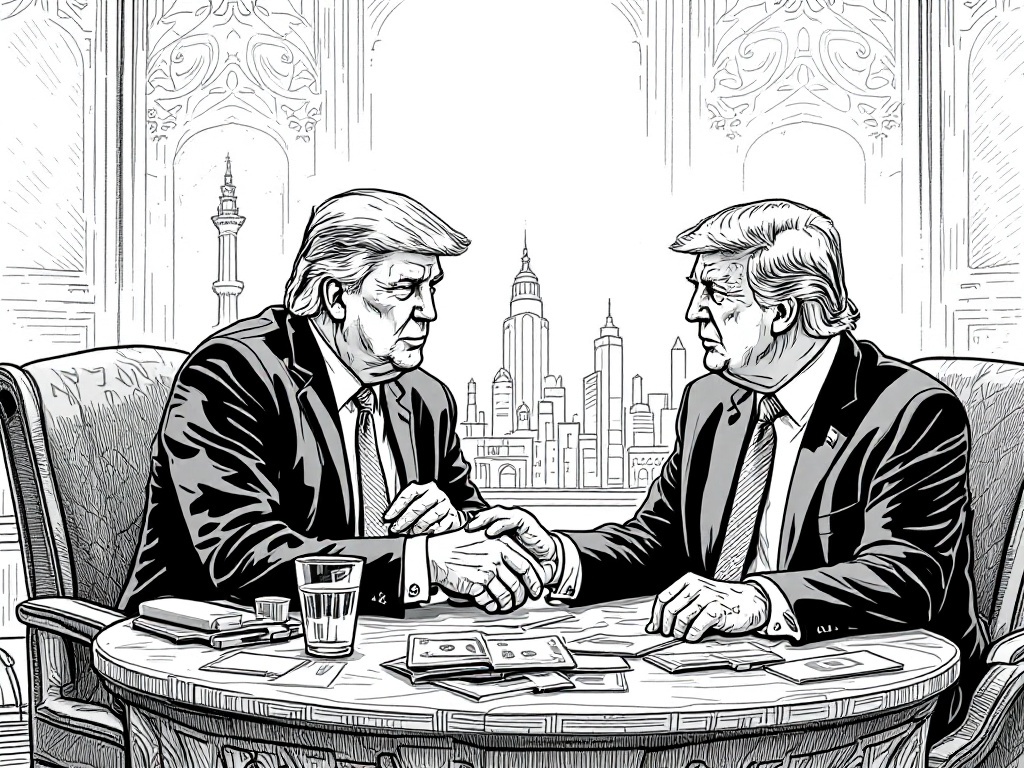Trump's Middle East Trip Focuses on Securing Key Mineral and Chip Deals

Riyadh, Tuesday, 13 May 2025.
During his trip, Trump aims to finalize deals on AI chips and minerals essential for tech advancements, highlighting a strategic shift towards economic ties over geopolitical diplomacy.
Pivotal Economic Shift: Trump’s Middle East Visit
President Donald Trump’s current visit to the Middle East, spanning from May 12 to May 15, 2025, underscores a significant transition towards economic cooperation. The focus of this trip is to secure crucial agreements on artificial intelligence (AI) chips and mining deals with major Gulf players, highlighting a pivot from traditional geopolitical strategies to building robust economic partnerships.[6][7]
AI Chips and Mineral Ventures
Amidst his tour, Trump is actively pursuing agreements to facilitate the sale of AI chips to prominent Middle Eastern corporations, including G42 of the United Arab Emirates and the newly established Saudi AI company, Humain. These deals, involving the export of hundreds of thousands of AI chips, are anticipated to position these nations as powerful competitors in the global AI sphere.[1][5] In tandem, a $9 billion memorandum of understanding has been approved between U.S. firm Burkhan World Investments and Saudi interests to mine essential minerals like lithium and cobalt, crucial for tech manufacturing and defense.[1]
Strategic De-Emphasizing of Geopolitical Concerns
The Trump administration’s decision to focus squarely on business dealings marks a notable departure from previous diplomatic endeavors. Historically, U.S. presidential visits to the Middle East often entailed strategic dialogues on regional security; however, Trump’s agenda highlights economic objectives, notably aiming for over $1 trillion in investment deals.[7][9] This approach indicates a reshaping of priorities, possibly in response to the ongoing need for resources driving cutting-edge technological industries.[9][10]
Critics and Supporters: Divergent Views
While the administration views this business-focused visit as a productive strategy, critics argue that the preferential treatment of Gulf allies could inadvertently bolster their technological capabilities, hence fostering a competitive edge against U.S. interests in AI advancement. Critics warn of potential overreliance akin to past dependencies related to oil.[1][6] However, supporters within Trump’s circle, including influential figures like Elon Musk and Sam Altman, assert that such economic collaborations are essential for sustaining America’s technological leadership in a rapidly evolving global market.[3][5]
Sources
- www.washingtonpost.com
- www.nytimes.com
- www.politico.com
- www.cnn.com
- www.aljazeera.com
- www.theguardian.com
- www.washingtonpost.com
- www.axios.com